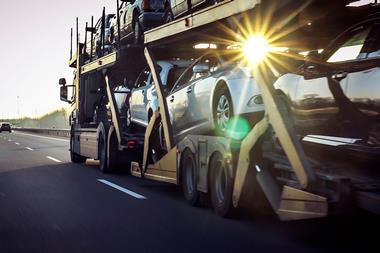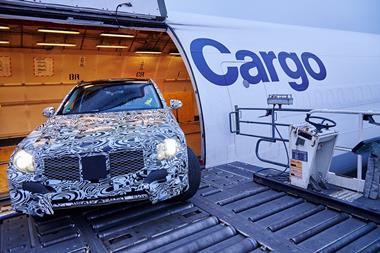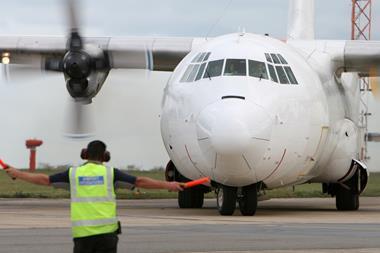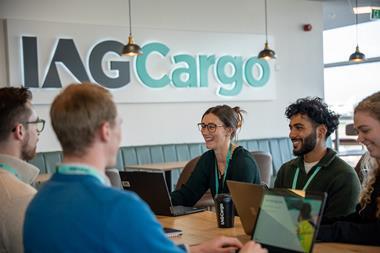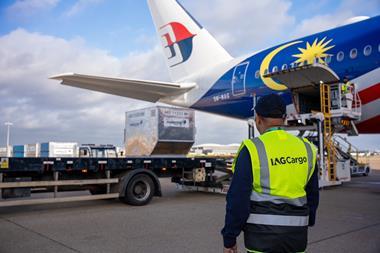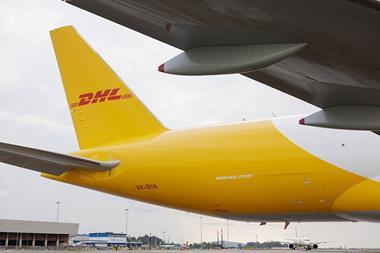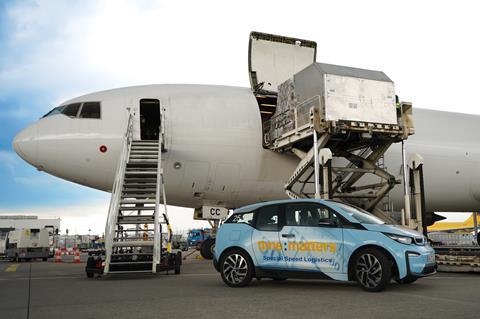
Resilient supply chains and sustainability are key components of the evolving automotive logistics market.
According to globally active integrator DHL, the automotive industry is undergoing paradigm shifts in four critical areas: electrification and connectivity; resilience and agility; sustainability; and shared and digital mobility.
And: “Automotive companies have to optimise their logistics processes to meet the increasing demands of this rapidly changing industry,” says Fathi Tlatli, the global auto-mobility sector president at DHL.
He believes that more resilient supply chains are required to cope with unexpected peaks in demand and bottlenecks, such as shortages of critical components, delays in transportation, or disruptions in raw material supplies.
The transition to electromobility and the growing connectivity of vehicles are expected to be key drivers of the transformation of mobility. Electric vehicle (EV) market penetration is projected to reach approximately 20% by 2025.
Meanwhile, sustainability initiatives in automotive logistics are increasingly focusing on the entire life cycle of batteries. This includes developing processes to recycle and extend the useful life of batteries through second-life applications, which are crucial for conserving resources and reducing environmental impact.
Changing demands
These and other developments impose new demands on logistics, Tlatli considers. The ability to devise innovative solutions for the storage and transportation of batteries, along with the creation of seamless, flexible and resilient supply chains, will be crucial for the long-term success of both car manufacturers and logistics providers, he suggests.
DHL handles a wide range of automotive-related shipments, including, but not limited to: auto parts and components for production; production materials; after-market products - including replacement parts and accessories used in vehicle maintenance and repair; tyres; and specialised equipment - including machinery and tools.
In addition to ensuring manufacturing lines do not stop and dealerships receive urgent parts to keep vehicles on the road, the integrator also provides services for finished vehicles and major auto shows and events.
Complete cars are moved for events like races and when transporting expensive models, and DHL has developed specialised container solutions to meet the unique needs of vehicle transportation, ensuring what it calls “maximum protection and confidentiality”.
And the DHL Group excels in adding value on trade lanes where capacity is tight or traditional services are unavailable, Tlatli declares, pointing to “extensive network and expertise” enabling it to deliver to even the most remote and challenging locations.
The automotive sector is a growing source of business for DHL.
“Although the volumes of new energy vehicles are still relatively low compared to traditional vehicles, we have made it our mission to establish an early presence in this market,” Tlatli informs.
“As new energy vehicles are expected to gain significant market share sooner rather than later, we are positioning ourselves to support this growth.”
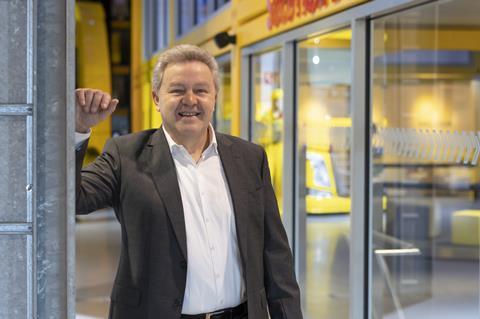
Specialised automotive services
As well as the huge freighter operators like DHL, many of the world’s scheduled airlines offer specialised automotive shipment services.
Camilo Garcia Cervera, chief sales and marketing officer at IAG Cargo, says that being able to offer a widebodied fleet of aircraft operating over a global network means the freight carrier is “a trusted partner for transporting all types of automotive spare parts”.
As with DHL, automotive-related loads carried range from tyres, shafts, gearboxes and seats to windshields and electronics, and even entire race cars. It delivers daily to airports serving production sites to keep car manufacturing running smoothly, Garcia notes.
Predominantly, however, IAG Cargo moves automotive shipments into the Americas and Europe. Many European and Japanese vehicle manufacturers, amongst others, have plants in South Africa so it is also a key destination for parts.
Of late, as a result of seaport congestion, it is seeing some heavier parts which would traditionally have been ocean-shipped now travelling via air to meet tight deadlines.
IAG Cargo works with a wide range of customers to facilitate ad-hoc freight movements, particularly when a significant volume requires moving, Garcia explains, and it offers a ‘Critical’ service – popular with automotive customers – designed to ensure time-sensitive shipments are moved through the IAG network with the fastest possible speed to meet the tightest of deadlines.”

Volumes
Airfreight is always going to play a critical role in the automotive world, and DHL’s Tlatli points to both capacity restrictions and changes in the auto market pushing up automotive volumes moving by airfreight.
It also represents an important part of IAG Cargo’s overall business mix, Garcia reports. While demand typically remains steady throughout the year to meet production schedules, volumes peak at certain times and due to specific circumstances, he notes.
For example, new car model launches or unexpected quality issues often lead to a surge in airfreight demand as manufacturers rely on the speed and reliability of air cargo to meet tight deadlines.
Seafreight disruption or production issues which result in a sudden shortage in supply can also cause a spike in demand for air. In these cases, urgently needed goods can only be transported quickly and safely worldwide via airfreight, Garcia points out.
He agrees with Fathi that the automotive industry is going through a transformational shift, driven by the transition to electric vehicles.
“This is changing the vehicle architecture and reshaping automotive supply chains, making the transport of automotive cargo more complex as the industry continues to look more hi-tech,” Garcia opines.
Meeting these demands often requires the safe handling of lithium batteries, which requires adherence to strict regulations and rigorous testing to ensure compliance for air transport, and – in addition to IAG Cargo’s Critical service – its Dangerous Goods service adheres to “the strictest standards to safely handle and transport hazardous cargo” across the airline’s network.
Quality
Meanwhile, automotive-related transportation also makes up an important part of the business mix for the flag-carrier of another traditional car manufacturing nation, Japan’s JAL Cargo.
Since the transportation of automotive parts and complete vehicles requires very delicate handling, “JAL Cargo strives to improve our quality every day to be chosen for handling [this type of shipment],” a Japan Airlines Cargo Division spokesperson tells Air Cargo News.
“Furthermore, for customers who prefer to minimise transportation times and use direct flights for race car transportation, our direct flight network and on-time performance rate are appealing,” they assert.
JAL Cargo transports vehicles such as passenger cars and racing cars, including the regular transportation of vehicles for several automobile manufacturers for car races, as well as regularly moving a range of automotive parts.
The cars and parts are moved over various routes to and from Japan. For example, in the case of Japanese automobile manufacturers, automotive parts manufactured across Japan may be flown to overseas car manufacturing plants or repair shops.
On the other hand, for overseas automobile manufacturers, parts manufactured overseas are transported to customers or repair shops in Japan. It is common to pass through either Tokyo’s Haneda Airport or Narita Airport.
For complete vehicles, they must meet maximum size constraints to be loaded onto an aircraft.
To overcome this and maximise loading efficiency while preventing direct contact with vehicles during loading and unloading, JAL Cargo developed a custom-made service called J SOLUTIONS WHEEL.
The J SOLUTIONS WHEEL platform is used for vehicle transportation in collaboration with leading Japanese automobile manufacturers.
The freight carrier also plans to develop an improved J SOLUTIONS WHEEL platform in 2025 to enable the transportation of a wider variety of vehicles to more destinations.

Time matters for automotive shipments
Time:matters, the logistics company that specialises in time-critical transportation, provides a variety of global high-performance shipment options, ranging from ad-hoc and on-board courier (OBC) to project shipments across various industries, including the automotive sector.
The company operates its own handling terminals for express and courier shipments at major hubs. Fast lane services and direct apron access guarantee minimum handling and transit on both import and export flows (starting at 45 minutes), as well as maximum control through the continuous monitoring of shipments during loading and unloading of the aircraft, informs Richard Campbell, time:matters’ head of Business Unit Automotive.
The unit delivers “a clear customer focus, client centricity, agility, as well as transparency for the specific needs of this market,” he adds, offering specialist expertise, streamlined and optimised processes designed specifically for automotive logistics.
Operations can be scaled up or down based on a customer’s needs while mitigating the risks faced by automotive customers that might face supply chain problems, representing greater reliability and offering cost savings through reduced downtimes, reductions in inventory holding costs, increased efficiency and the avoidance of production delays.
The need for speed
There are several reasons why there might be a time-critical need to move automotive cargo, Campbell explains.
These can include supply chain disruptions, perhaps stemming from unexpected events such as natural disasters, strikes, geopolitical issues or regulatory changes; the requirements of the just-in-time (JIT) inventory systems used in this business vertical, where car parts are delivered exactly when needed to reduce inventory costs; the need for urgent repairs and maintenance of production lines; and those cases of urgent customer orders or specific requests for which timely delivery can greatly enhance customer satisfaction and loyalty.
The mode of transportation for automotive shipments, whether through charters or scheduled services, can depend on several factors, including urgency, volume, cost, and specific logistical requirements.
Charters offer flexibility in scheduling and routing, which can be crucial for time-sensitive or high-value shipments, while scheduled services are often used for regular, predictable shipments as well as for some ad-hoc shipments.
As for the volumes typically handled, this depends on a wide range of factors, not least industry market conditions, product launches, seasonality, plus supply chain disruptions and shifts in global production patterns, such as the relocation of production to other countries due to economic and geopolitical conditions.
Additionally, a shift from ocean to airfreight, for example due to port strikes, shipping route disturbances or global weather conditions, will add to the demand for automotive air shipping, while automotive technology upgrades will tend to stimulate demand and relevant regulatory changes in the automotive field can also have an impact.
At the moment, Campbell is seeing high demand for critical auto-shipments, driven by the increasing size of the global supplier footprint in the automotive industry.
Ongoing global supply chain challenges, such as shortages of semiconductor chips and other critical components, have heightened the need for efficient logistics solutions to mitigate delays and keep production lines running smoothly, while advances in logistics technology, including real-time tracking and improved route optimisation, have enhanced the efficiency and reliability of time-critical shipments, and made them more attractive to the automotive industry.
Overall, he concludes, “The market for time-critical automotive shipments is robust and growing, driven by the essential nature of maintaining seamless production in the automotive sector and the increasing complexity of global supply chains.”






